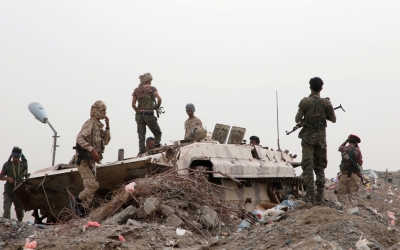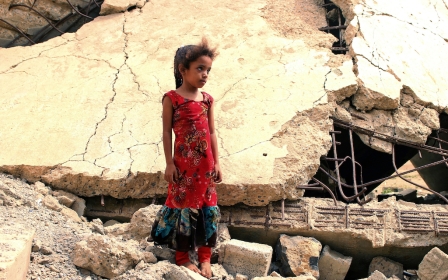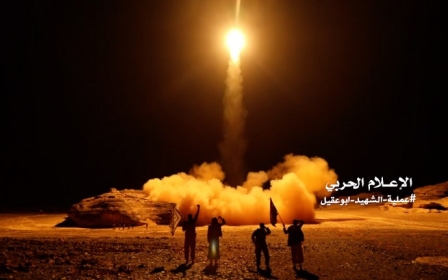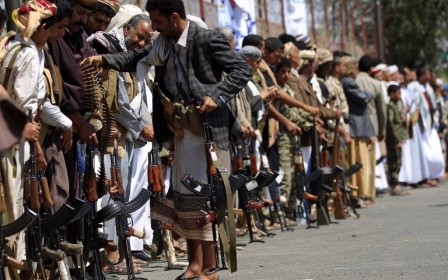Millions of Yemenis face aid cuts as UAE, Saudi Arabia fail to meet pledges
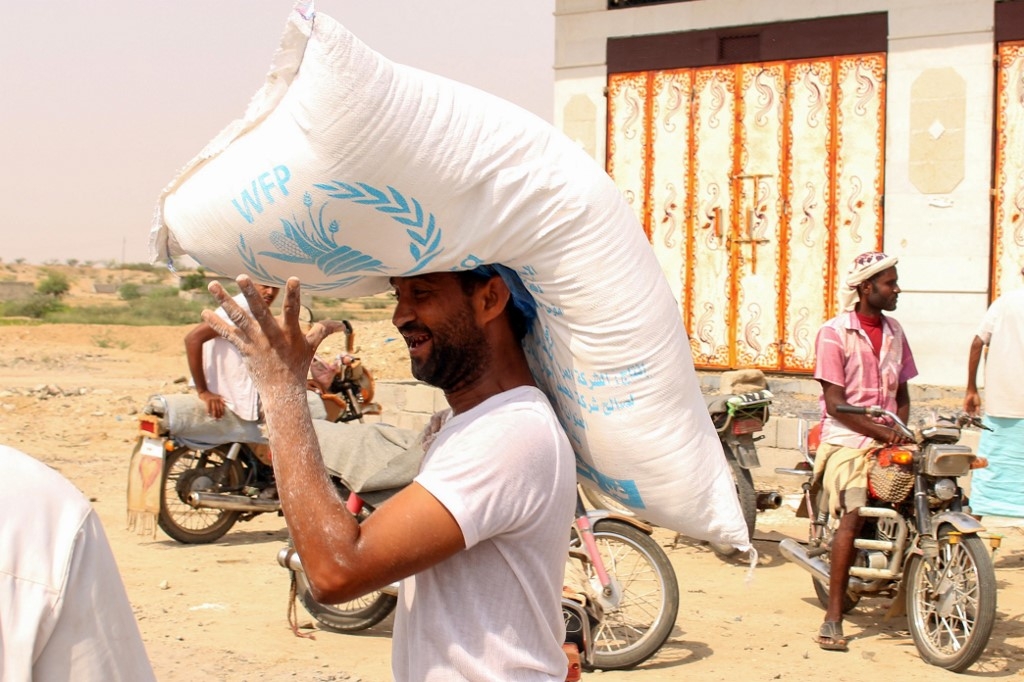
Millions of Yemenis face severe cuts to food, medicine and other handouts because two key donors, the United Arab Emirates and Saudi Arabia, have not provided funds promised earlier this year, the United Nations said in a statement.
The UN’s Office for the Coordination of Humanitarian Affairs (OCHA) said food handouts to 12 million Yemenis and health services to 19 million were on the chopping block because of massive funding shortfalls.
New MEE newsletter: Jerusalem Dispatch
Sign up to get the latest insights and analysis on Israel-Palestine, alongside Turkey Unpacked and other MEE newsletters
Megadonors UAE and Saudi Arabia pledged $1.5bn towards the UN’s $2.6bn Yemen appeal at a fundraiser in February.
Until now, Abu Dhabi has paid only $16m and Riyadh $127m, a spokesman told Middle East Eye on Wednesday.
"Since the pledging conference six months ago, nearly all donors have paid most or all of their 2019 pledges. Some have paid even more. But the largest donors – Yemen’s neighbours in the coalition – have so far paid only a modest share of what they have promised," the UN’s deputy aid chief Ursula Mueller said.
"Essential programs are now closing down. You heard last month about vaccination campaigns, supplies for health facilities and cholera prevention programs that had been cancelled. These cuts are now much deeper," Mueller said.
Neither the UAE nor Saudi Arabia’s missions to the UN responded to MEE’s requests for comment. In the past, both Gulf powers have disagreed with the UN over how much money they channelled through the world body.
The funding gap was revealed amid heightened tensions in Yemen, where a military push by southern secessionists has exposed a fracture between the UAE and Saudi - the two key players in a military coalition fighting in the Gulf's poorest nation.
The long-running war has escalated into what the UN calls the world's worst humanitarian crisis, with more than two-thirds of Yemenis needing aid, millions of people forced from their homes, and tens of thousands killed.
'Staggering' cuts
On Wednesday, UN spokesman Stephane Dujarric warned the humanitarian crisis would likely expose more Yemenis to hunger and disease unless donor countries came good on their pledges within weeks.
"A staggering 22 life-saving programmes will close in the next two months unless funds are received," Dujarric told reporters in New York.
"The UN was forced to suspend most of Yemen’s vaccination campaigns in May, and the procurement of medicines has stopped and thousands of health workers are no longer receiving financial support."
Without new funding, food rations to 12 million people may be reduced, including aid to at least 2.5 million malnourished Yemeni children that have been "keeping them alive", Dujarric added.
About 19 million people may lose access to health care, tens of thousands of Yemenis may be made homeless and clean water may stop flowing for five million people at the end of October, the UN said.
Already, the UN has shelved plans to build 30 feeding centres, 14 shelters and four mental health clinics. A water purification plant was shut in June, meaning local farmers struggle to irrigate their fields, the UN said.
Saudi Arabia and the UAE are in a Western-backed military coalition that intervened in Yemen in 2015 in a bid to restore the government of president Abd-Rabbu Mansour Hadi, who was ousted from power by Houthi rebels.
This month, southern separatist forces trained and armed by the UAE seized the presidential palace in Aden, the temporary seat of Hadi's government, straining ties in a coalition that has struggled to make military gains against the Houthis.
Middle East Eye delivers independent and unrivalled coverage and analysis of the Middle East, North Africa and beyond. To learn more about republishing this content and the associated fees, please fill out this form. More about MEE can be found here.


